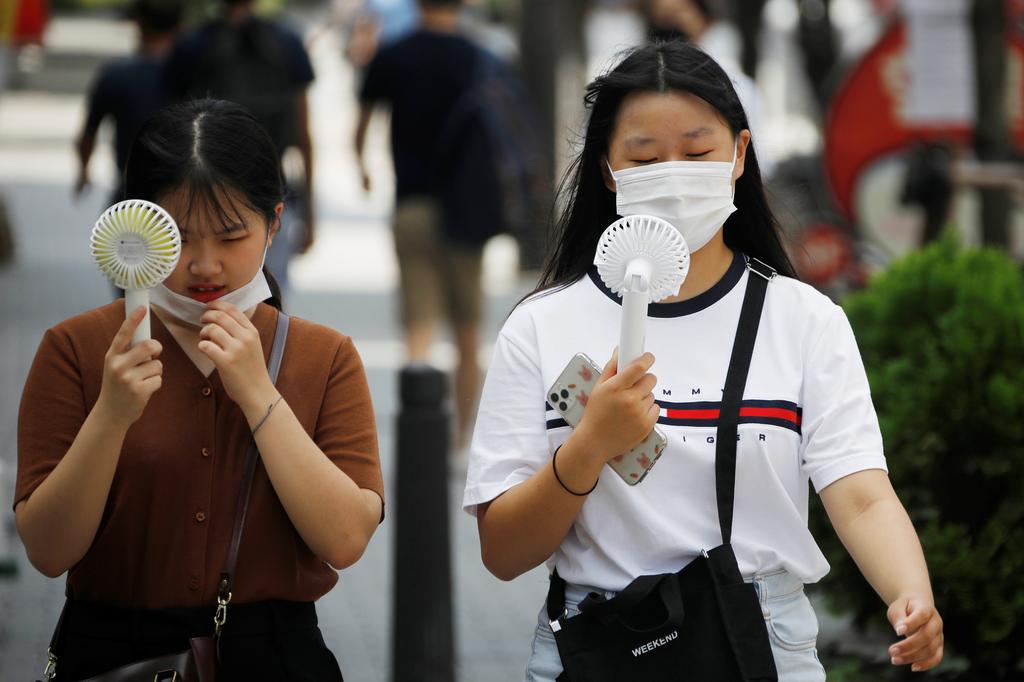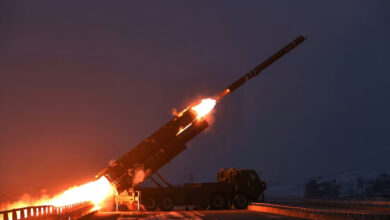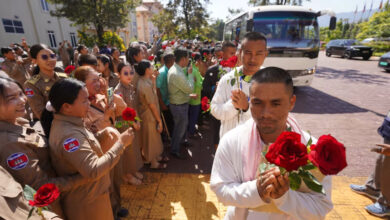
SEOUL (Reuters) – South Korea’s coronavirus infections are back “in full swing” and spreading nationwide after members of a church attended a political demonstration, authorities said on Thursday, threatening one of the world’s COVID-19 success stories.
The Korea Centers for Disease Control and Prevention (KCDC) reported 288 new cases as of midnight on Wednesday, marking a week of triple-digit daily increases, although down slightly from the previous day’s 297.
“This is a grave situation that could possibly lead to a nationwide pandemic,” Vice Health Minister Kim Gang-lip told a briefing.
Without aggressive contact tracing, the country could experience the types of spikes and continued infections witnessed in the United States and Europe, said KCDC deputy director Kwon Jun-wook.
“Consider the COVID-19 pandemic now to be in full-swing.”
South Korea was one of the first countries outside China to see an explosive spread of the new coronavirus, but intensive tracing and testing had brought infections under control and quelled a subsequent series of spikes.
The latest outbreak is driven by hundreds of infections among members of a church run by a far-right preacher. They had attended an anti-government protest in Seoul on Aug. 15, the 75th anniversary of the Japan’s World War Two surrender and the end of colonial rule.
Kwon urged all demonstrators to get tested immediately at nearby public health clinics to protect the vulnerable around them.
The demonstration may have been a “catalyst” for the nationwide outbreak, as churchgoers chartered buses to the capital from their homes across the country, including the southern port of Busan, Kwon said.
NODS NOT HUGS
South Korea has reported 16,346 cases of the new coronavirus with 307 COVID-19 deaths.
If infections continue rising at the current rate or accelerate, authorities say they will likely impose the strictest level of social distancing – closing schools, requiring employees to work from home and limiting gatherings to 10 people.
“Please do not make physical contact. Exchange nods instead of handshakes,” Kwon said. “Refrain from physical contact such as hugging.”
At least 53 of the new infections are linked to the Sarang Jeil Church, bringing the group’s total to 676. Hundreds more church members are being traced for testing.
Infections from the Seoul rally and one on Aug. 8 include people from nine cities and provinces. Health authorities said epidemiological work is underway in 150 facilities, including the workplaces of infected church members.
Sixty infections, including 33 from the church, have been linked to the anti-government rallies in Seoul, which drew thousands of people. At least 8,500 demonstrators had been tested as of Thursday, Kwon said.
The government has banned in-person church meetings in the greater Seoul area – an urban sprawl of 25 million people – and closed other high-risk locations, including nightclubs, karaoke bars, buffets and cyber cafes.
The Seoul city government restricted rallies there to fewer than 10 people from Friday through the rest of August.
Reporting by Sangmi Cha and Josh Smith; Editing by Lincoln Feast, Robert Birsel and William Mallard
Image; Women wearing masks to prevent the spread of the coronavirus disease (COVID-19) use portable fans to cool down in Seoul, South Korea, August 20, 2020. REUTERS/Kim Hong-Ji




